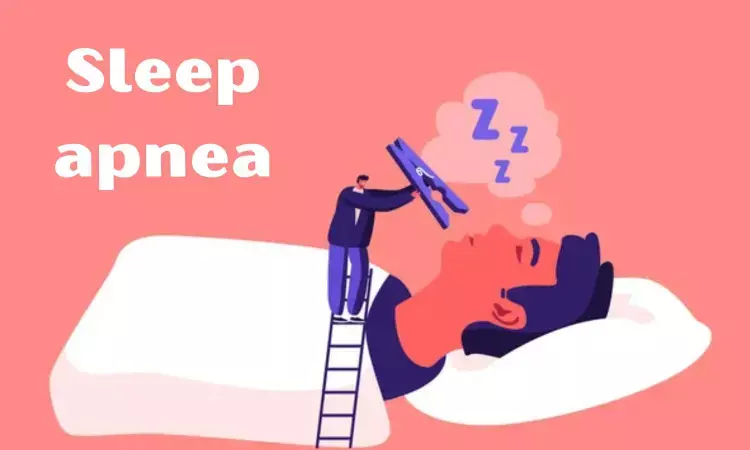- Home
- Medical news & Guidelines
- Anesthesiology
- Cardiology and CTVS
- Critical Care
- Dentistry
- Dermatology
- Diabetes and Endocrinology
- ENT
- Gastroenterology
- Medicine
- Nephrology
- Neurology
- Obstretics-Gynaecology
- Oncology
- Ophthalmology
- Orthopaedics
- Pediatrics-Neonatology
- Psychiatry
- Pulmonology
- Radiology
- Surgery
- Urology
- Laboratory Medicine
- Diet
- Nursing
- Paramedical
- Physiotherapy
- Health news
- Fact Check
- Bone Health Fact Check
- Brain Health Fact Check
- Cancer Related Fact Check
- Child Care Fact Check
- Dental and oral health fact check
- Diabetes and metabolic health fact check
- Diet and Nutrition Fact Check
- Eye and ENT Care Fact Check
- Fitness fact check
- Gut health fact check
- Heart health fact check
- Kidney health fact check
- Medical education fact check
- Men's health fact check
- Respiratory fact check
- Skin and hair care fact check
- Vaccine and Immunization fact check
- Women's health fact check
- AYUSH
- State News
- Andaman and Nicobar Islands
- Andhra Pradesh
- Arunachal Pradesh
- Assam
- Bihar
- Chandigarh
- Chattisgarh
- Dadra and Nagar Haveli
- Daman and Diu
- Delhi
- Goa
- Gujarat
- Haryana
- Himachal Pradesh
- Jammu & Kashmir
- Jharkhand
- Karnataka
- Kerala
- Ladakh
- Lakshadweep
- Madhya Pradesh
- Maharashtra
- Manipur
- Meghalaya
- Mizoram
- Nagaland
- Odisha
- Puducherry
- Punjab
- Rajasthan
- Sikkim
- Tamil Nadu
- Telangana
- Tripura
- Uttar Pradesh
- Uttrakhand
- West Bengal
- Medical Education
- Industry
Sleep apnea linked to changes in brain including enlarged hippocampus, finds research

According to a study published in December 18, 2024, online issue of Neurology, Individuals with sleep-related breathing problems may have an enlarged hippocampus, the brain region responsible for memory and cognition.
The study, which included mostly Latino people, also found that those with lower oxygen levels during sleep had changes in the deep parts of the brain, the white matter, a common finding of decreased brain health that develops with age.
Sleep disordered breathing is a range of conditions that cause abnormal breathing during sleep including snoring and obstructive sleep apnea. Obstructive sleep apnea is when a person stops breathing five or more times per hour. When breathing stops, it can lower oxygen levels, affecting the brain.
“Some studies have found sleep problems and lower oxygen levels during sleep have been linked to brain shrinkage while others have found a link to brain growth,” said study author Alberto R. Ramos, MD, of the University of Miami and Fellow of the American Academy of Neurology. “Both brain shrinkage and brain growth can harm memory and thinking by disrupting normal brain functions, increasing the risk of cognitive decline and dementia. Our study looked at Latino people, who have a higher risk of dementia when compared to non-Latino white people.”
The study involved 2,667 Latino people with an average age of 68.
At the start of the study, each participant was given a take-home sleep test that measured how often they stopped breathing, called apneas, and how often they had slow or shallow breathing, called hypopneas.
They were divided into three groups: those who had fewer than five sleep disruptions per hour, or no sleep problems; those with five to 15 disruptions, mild sleep problems; and those with more than 15, moderate to severe sleep problems. Of the total participants, 56% had no sleep problems, 28% had mild sleep problems and 16% had moderate to severe sleep problems.
Researchers also measured oxygen levels in the bloodstream during sleep.
Ten years later, participants had brain scans to measure brain volume and white matter hyperintensities, areas in the white matter where the brain tissue has been damaged.
After adjusting for factors such as age, sex, high blood pressure and whether a participant had insurance, they found that people in the group with the most sleep problems had 0.24 cubic centimeters (cm3) greater brain volume in the hippocampus than those with no sleep problems.
They also found that for each additional sleep disruption, there was a 0.006 cm3 increase of brain volume in the hippocampus. Researchers found lower oxygen during sleep was also associated with increased hippocampal volume as well as increased white matter hyperintensities.
“Our findings highlight the complex relationships between sleep health and brain aging and show there is a need for longer studies that follow people beginning in middle age or earlier,” Ramos said. “A clear understanding of how brain volume is affected by sleep apnea and other sleep disorders is essential so people can receive early and effective treatment, especially in people who may be at higher risk for dementia.”
A limitation of the study was that it only included Latino adults, so results may not be the same for other populations.
Reference:
Alberto R. Ramos, Christian Agudelo Sleep Disordered Breathing and Subsequent Neuroimaging Markers of Brain Health in Hispanic/Latino Adults, Neurology, https://doi.org/10.1212/WNL.0000000000210183
Dr Kamal Kant Kohli-MBBS, DTCD- a chest specialist with more than 30 years of practice and a flair for writing clinical articles, Dr Kamal Kant Kohli joined Medical Dialogues as a Chief Editor of Medical News. Besides writing articles, as an editor, he proofreads and verifies all the medical content published on Medical Dialogues including those coming from journals, studies,medical conferences,guidelines etc. Email: drkohli@medicaldialogues.in. Contact no. 011-43720751


